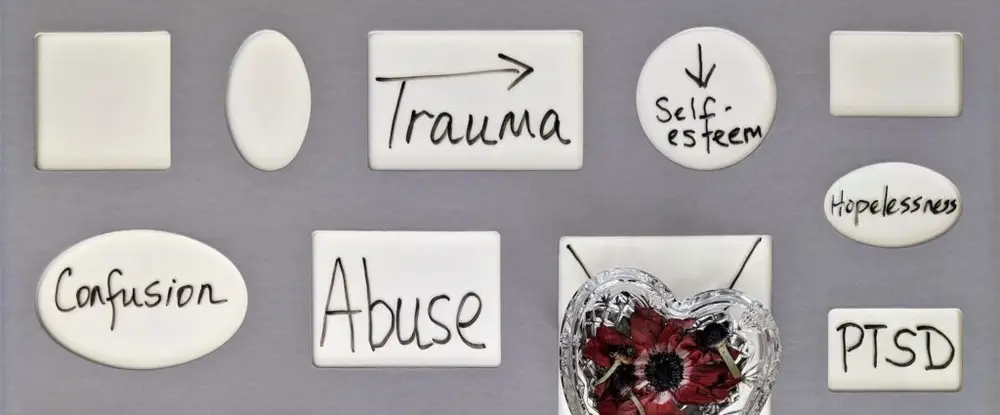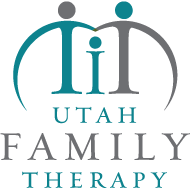Former President's Recent Assassination Attempt and Its Impact on Our Children: How Utah Family Therapy Can Help
In recent news, the shocking event of former President being shot has sent ripples of fear, confusion, and concern across the nation.
The incident has dominated headlines, social media feeds, and conversations, leaving adults and children grappling with mixed emotions.
Such traumatic events can have profound and lasting effects on children, significantly influencing their mental and emotional well-being.
As parents and guardians, it’s crucial to understand these impacts and seek appropriate support.
Utah Family Therapy provides the urgent guidance and care necessary to help your children navigate these challenging times with several options:
- Individual Therapy
- Family Therapy
- Group Therapy
Table of Contents
The Immediate Impact of Trauma on Children
Children are often more sensitive to traumatic events than adults, primarily because they are still developing their understanding of the world and their place within it.
Witnessing or hearing about violence, especially involving a well-known figures, can lead to a range of emotional and psychological responses:
1. Fear and Anxiety: Children may develop an increased sense of fear and anxiety.
They might worry about their safety and the safety of their loved ones.
This fear can manifest in various ways, such as nightmares, reluctance to go to school, friends, or fear of leaving the house.
2. Confusion: Younger children, in particular, may struggle to understand the complexity of such events.
They might have questions about why and whether it could happen to them or someone they know.
3. Emotional Distress: Exposure to violent events can cause significant emotional distress.
Children may feel sad, angry, or helpless.
They might become more irritable or withdraw from social interactions.
4. Behavioral Changes: Trauma can lead to noticeable changes in behavior.
Some children may become more aggressive, while others might become overly clingy or regress to previously outgrown behaviors, such as bed-wetting or thumb-sucking.
The Impact of Media Exposure
In today’s digital age, news spreads rapidly, and children are often exposed to information through various media channels.
The 24/7 news cycle, coupled with social media, means that children can easily access or stumble upon graphic and distressing content related to traumatic events.

1. Constant Re-exposure: Continuous exposure to news updates and social media discussions can exacerbate a child’s distress.
Seeing repeated images or videos of the incident can reinforce their fear and anxiety.
2. Misinformation: Social media can also be a source of misinformation.
Children may come across exaggerated or false accounts of the event, which can increase their confusion and fear.
3. Peer Discussions: Conversations with friends can further amplify the impact.
Children might share their fears and anxieties, sometimes escalating their concerns rather than alleviating them.
Helping Children Cope with Trauma
As parents, guardians, and educators, it’s essential to provide children with the support they need to process and cope with traumatic events.
Here are some strategies to consider:
1. Open Communication: Encourage open and honest communication.
Allow children to express their feelings and ask questions.
Answer their questions truthfully but in an age-appropriate manner.
It’s essential to provide reassurance and emphasize their safety.
2. Limit Media Exposure: Monitor and limit their exposure to distressing news.
Encourage breaks from social media and news channels.
Instead, engage them in positive activities that can distract them and lift their spirits.
3. Maintain Routine: Keeping a routine can provide a sense of normalcy and stability.
Ensure that children continue their daily activities, such as attending school, participating in extracurricular activities, and spending time with family and friends.
4. Encourage Expression: Allow children to express their feelings through creative outlets such as drawing, writing, or playing.
These activities can help them process their emotions healthily.

Utah Family Therapy: Providing Support and Healing
Understanding the profound impact that trauma can have on children, Utah Family Therapy can help your family navigate these challenging times.
Our compassionate and experienced professionals are dedicated to supporting each child’s and family’s unique needs, ensuring they feel reassured and supported.
1. Individual Counseling: One-on-one counseling sessions provide a safe space for children to explore their feelings and fears.
Our therapists use play and cognitive-behavioral therapy (CBT) to help children process their emotions and develop coping strategies.
2. Family Counseling: Trauma affects the entire family.
Family counseling sessions can improve communication, strengthen family bonds, and provide a supportive environment for children to express their feelings.
It reinforces the point that therapy is okay to get as a whole.
3. Group Therapy: Group therapy sessions allow children to connect with others with similar experiences.
Sharing their stories and hearing from peers can help them feel less isolated and more understood.
4. Trauma-Informed Care: Our therapists are trained in trauma-informed care, ensuring that all interactions are sensitive to the needs of traumatized individuals.
This approach helps children feel safe and supported throughout their healing journey.
The Importance of Seeking Help
Traumatic events, such as the shooting of a prominent figure, can leave lasting scars on a child’s psyche.
Recognizing the signs of distress and taking proactive steps to seek professional help is crucial.
Early intervention can prevent long-term psychological issues and help children develop resilience, empowering parents and guardians to take action.
Utah Family Therapy is committed to helping families during these difficult times.
Our approach is rooted in compassion, connection, and evidence-based practices, ensuring every child receives the care they need to heal and thrive.
Conclusion
The shooting is a stark reminder of the unpredictable nature of the world we live in.
While adults grapple with the political and social implications, children are left to process the emotional and psychological impact.
By understanding the effects of such trauma and providing the necessary support, we can help our children navigate their fears and anxieties.
Utah Family Therapy offers professional guidance and compassionate care to ensure that your children emerge from these experiences more robust and resilient.
If your child is struggling with the aftermath of recent events or other traumatic events they may have experienced, don’t hesitate to contact us at 801.901.0279.
Together, we can promote safety, healing, and hope for the future.

Action Items for Parents
1. Initiate Open Conversations:
– Choose a quiet, comfortable place and set aside time to talk with your children about the recent traumatic event within the next few days.
Allow them to express their feelings and ask questions.
2. Monitor and Limit Media Exposure:
– Control your children’s exposure to news and social media content related to the traumatic event.
Designate some media-free times and play games with them.
3. Maintain Daily Routines:
– Stick to established routines, and keep your children’s daily routines consistent to provide a sense of normalcy and security.
4. Encourage Creative Expression:
– Allow your children to express their emotions through creative activities like drawing, writing, or other creative outlets.
5. Reassure Safety:
– Reassure your children about their safety and the safety of their loved ones.
Offer comfort and stability through your words and actions.
6. Seek Professional Support:
– Contact Utah Family Therapy, 801.901.0279 or another mental health provider for professional counseling if your child shows distress.
7. Educate Yourself on Trauma-Informed Care:
– Learn about trauma-informed care principles to better support your children.
8. Promote Positive Activities:
– Engage your children in positive and distracting activities like outings, games, hobbies, or sports to help them cope.
9. Stay Calm and Composed:
– Manage your stress and reactions to model calm and composed behavior for your children.
10. Monitor Behavioral Changes:
– Monitor any changes in your children’s behavior that may indicate distress, like increased aggression, withdrawal, changes in sleep patterns, or regression.
By implementing these action items, you can provide the necessary support and stability for your children to navigate the emotional impact of traumatic events like a shooting.
Utah Family Therapy is available to assist families needing professional guidance and counseling during these challenging times.
